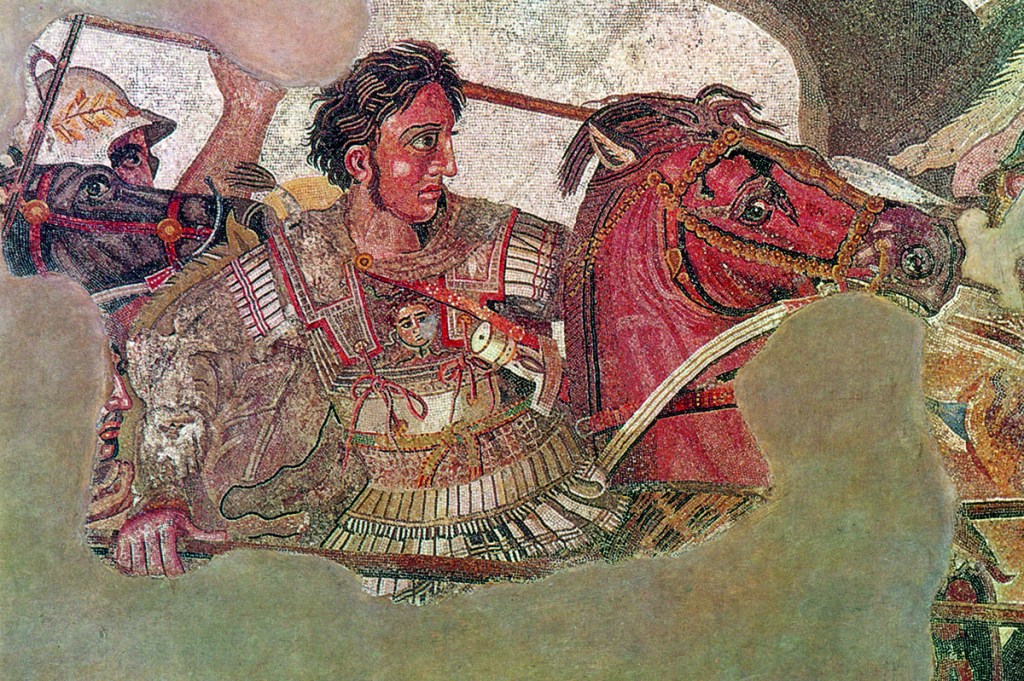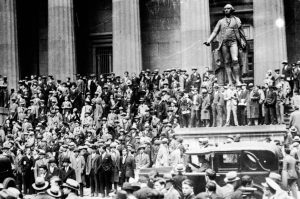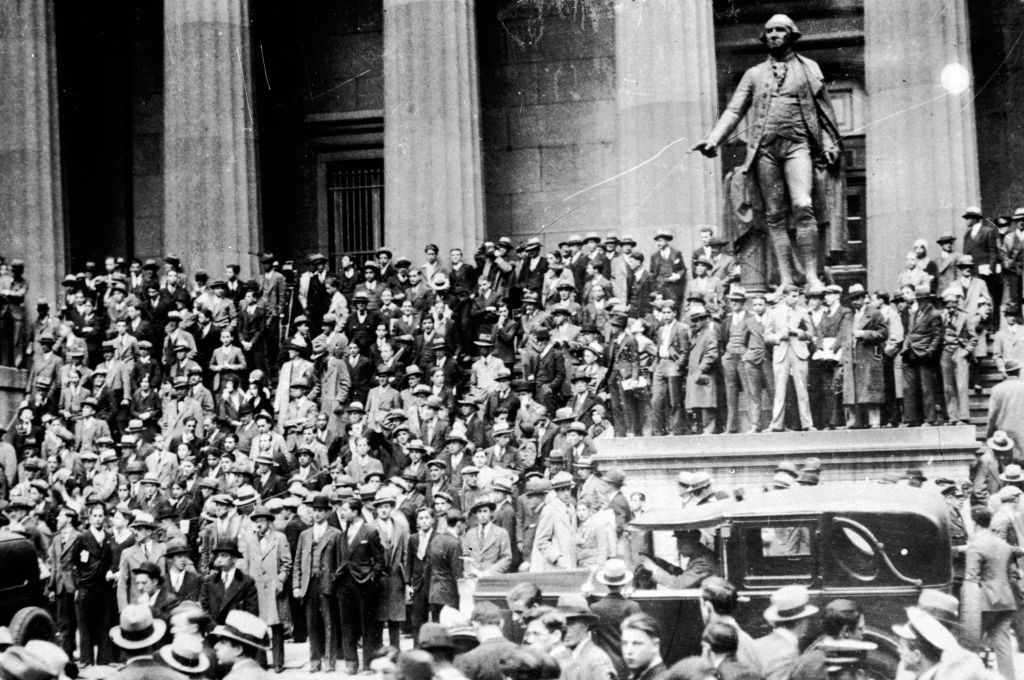We are traveling through a shower of Greek anniversaries, triumphant and calamitous. Last year marked the 25th centenary of the Battle of Salamis in 480 BC, when 300 Greek warships defeated a Persian armada four times larger and ended the Persian empire’s expansion into Europe. This year marks the bicentenary of the beginning of the Greek War of Independence from the Ottoman empire in 1821, which resulted in the first European nation-state to be founded on the Enlightenment values of the American Constitution.
Next year will mark the centenary of Greece’s defeat in Asia Minor in 1922, which ended the modern Greek state’s aspirations to absorb all the lands where Greeks lived and had lived since antiquity, an event still referred to as ‘the catastrophe’. And 2023 will see the centenary of the Treaty of Lausanne, which organized the first mass exchange of populations in modern times, forcing Christians to leave Turkey and Muslims to leave Greece.
In The Greeks: A Global History, Roderick Beaton encompasses the entire story, beginning with the Minoans whose civilization ended 3,200 years ago. He defines as Greek anyone who spoke and wrote Greek, appropriately because language was the core criterion by which the Greeks defined themselves over the centuries. Much else about them was mutable. At various times they called themselves Achaeans, Hellenes and Romans. The boundaries of Greek territory have waxed and waned, but the nation has been boundless, establishing itself everywhere on the globe.
Unlike other long-lived civilizations, when the Greeks did achieve self-determination they experimented with different political systems: monarchy, tyranny, oligarchy and democracy are all Greek words. They were the subjects of two empires and ruled at least three. They switched religious allegiance too, from the Olympian gods to Christianity.
Beaton also emphasizes the constants. The Greek peninsula and the Aegean Sea always formed the core of the Greek homeland. That kept them at a crossroads, often at war and always pivotal to Europe’s relationship with Asia. Shipping has consistently been crucial to their survival, and they have always produced an extensive diaspora. The Greeks are hoarders and developers of knowledge, and this soft power explains their astonishing ability to survive, adapt and prosper during losses of hard power. And they have always shown a penchant for vanity, envy, faction and betrayal, something their enemies were quick to exploit.
Beaton believes the Greeks began to cohere as a self-conscious political entity with their victory at Salamis, not only because of their military triumph, but also because of the propaganda that followed it. In Aeschylus’s play The Persians the central character, Atossa, is mother to the Persian king, Xerxes, and widow of another king, Darius, who had tried and failed to conquer the Greeks 10 years earlier. Incredulous at the news of another defeat, Atossa asks how the Greeks could have stood up to such enormous odds. She is told that they were fighting for their liberty. Thus, Beaton argues, The Persians ‘brings into being an entire moral and geopolitical universe that had not existed’. Athens became an empire with a democracy at its heart — the model that still inspires America.
Repeatedly crossing swords with the east is arguably what hammered the Greeks into a polity. The Trojan War of 1194-1184 BC and the Persian Wars seven centuries later were followed by Alexander’s invasion of Asia in 334 BC, which established Greek kingdoms from Macedonia to India almost until the birth of Christ. As rulers of the eastern Roman Empire from Constantinople, the Greeks fought Arabs, Persians, Slavs and Turks for more than a thousand years, cementing their view of themselves as defenders of Europe from the east.
The sense of nationhood the Greeks achieved under Athenian leadership at Salamis did not last. It aroused envy among the Spartans, who had been supplanted as Greece’s supreme military and political power. Persian kings learned that it was easier to set the Greeks against each other than to fight them, and paid Sparta to instigate a war against Athens. The Spartans defeated Athens in the Peloponnesian War (431-404 BC) and returned the Greek cities along the coast of Asia Minor to Persian control. But Sparta did not enjoy its victory for long.
Eager to keep the Greeks at each other’s throats, the Persian king Artaxerxes now began bribing Sparta’s enemies. The Corinthian War (395-387 BC) pitted Thebes, Corinth, Athens and Argos against Sparta. The Spartans narrowly avoided defeat by negotiating terms directly with Artaxerxes. Thebes would later defeat Sparta decisively under its brilliant general Epaminondas without Persian gold, but his untimely death forestalled the cementing of a new national leadership. The 4th century BC unfolded as an opera of constant wars among ever-weaker city states. By the time the Macedonian king Philip II swept south to unite Greece by force, even Persian gold, spent lavishly on the Athenians to stop him, couldn’t finance a competent resistance.
After the death of Alexander, division also bedeviled Greece’s piecemeal efforts to resist the looming power of Rome. The Macedonian court made itself a target for Roman retribution by siding with Hannibal in the Second Punic War. When a Roman army defeated Philip V of Macedon in Thessaly in 197 BC, it was in part because many Greek city-states had sided with the Romans in a bid to win back their independence from Macedonian rule.
The Romans were astute enough to grant that independence at first, calculating that a string of city-states on their eastern frontier posed no threat. But after two more Macedonian kings raised armies and were defeated, at Magnesia in Asia Minor in 188 BC and at Pydna on the Macedonian coastline in 168 BC, the kingdom of Macedon was split into four regions answerable to Rome. Nor did the Romans give the Macedonian kingdoms in the east any respite. When Antiochus IV defeated Ptolemy VI in a bid to unite the Macedonian kingdoms of Asia and Egypt, Rome, the new Mediterranean power, forbade the merger.
Still the Greeks played on for the low stakes of local government. The cities of the Peloponnese formed an Achaean League, based in Corinth, and asked Rome to sanction it. The Macedonian dynasts of the east had, at least, realized that size alone could consolidate Greek power. The peninsular Greeks, it seems, never did. Three years after it razed Carthage, Rome did the same to Corinth. Autonomy on the Greek peninsula was at an end.
Thirteen centuries later, another Greek made the mistake of enlisting an outside power he could not control. In 1195, Alexios, the young heir to the throne of Byzantium, made his way to Venice, where a French army was mustering for a Fourth Crusade to claim Alexandria and Jerusalem for Christendom. The Venetians were building it a fleet of shallow-bottomed boats to navigate the Nile delta. The French couldn’t pay for the boats, but had agreed that the Venetians would be paid through conquest. Prince Alexios showed up at Venice from Constantinople, a city of fabled wealth, and told them he would pay their expenses if only they would oust his usurper uncle and restore him on the throne.
The expedition changed course for Constantinople. The mere sight of its thousand galleys in the Bosphorus was enough to turn the uncle to flight with as much gold as he could carry. Alexios found the state coffers empty, vacillated about how to pay the crusaders, and found himself besieged. On April 12, 1204, the Catholic armies entered the city. The pillage, rape and killing carried on for days. An inexperienced heir had brought ruin to the Byzantine empire at the hands of fellow-Christians. Even though the Greeks reconquered the city in 1261, it never again became a geopolitical force. When it fell for the last time to the Ottomans in 1453, it had already lost its lands.
The errant Fourth Crusade proved a geopolitical reality: the Greeks’ constant confrontation with the east meant that they always needed to be on good terms with the west. This, at least, is a lesson the Greeks finally absorbed when they rebelled against the Ottoman empire almost four centuries later.
Beaton suggests that, as they lost their independence, the Greeks became adept at infiltrating their conquerors with soft power. Its first triumph came at the end of the Peloponnesian War in 404 BC. Plato documents the philosophers who came from all over Greece to set up shop in what could be described as the world’s first higher education industry. Philip II made a conscious decision to steer the Macedonian kingdom toward Athenian learning. He hired Aristotle to teach his son, Alexander. Beaton avoids the modern debate about whether they were racially Greek; the point is that they were ‘rapidly becoming Greek’, and the culture Alexander established in Asia was Greek.
This idea of belonging through culture was first articulated by the Athenian orator Isocrates in 380 BC:
‘By so much has our city exceeded all mankind in matters of thought and speech…she has caused the name of Greeks to be understood, not in terms of kinship any more, but of a way of thinking, and people to be called Greeks if they share our educational system, rather than a common ancestry.’
This is nothing other than naturalization, still a basis for citizenship in the open societies of the western world and a cornerstone of liberalism. It was first articulated 23 centuries ago amid the highly tribal politics of the city-states where, as Beaton puts it, ‘it was the idea of their autonomy from one another that held the deepest claim on the loyalty of Greek citizens, trumping by some margin their shared identity as Hellenes’. Isocrates wanted to rally the Greeks behind Philip II in a national quest to conquer the Persian empire. Restricting citizenship to the offspring of citizens was simply supremacism. The Spartans, who jealously preserved their genetic purity, were roundly hated and then died out. Philip understood the magnitude of Isocrates’s vision. Many Greeks did not.
‘The empire that Alexander was busy consolidating in 324 BC was not conceived as a Greek empire,’ Beaton writes:
‘It may well have been a first – ever – attempt at global supremacy, deliberately transcending the boundaries of ethnicities, cultures and identities. But, even though Alexander had probably never had any such intention, the effect of his conquests was already, visibly, to carry Greek ideas, Greek ways of doing and making things, and above all the Greek language far inland from the places where they had started out, across the Asian landmass as far as today’s Uzbekistan, Afghanistan, Pakistan, and the northwestern corner of India.’
Athens’s soft power grew in the Roman era. Greek tutors became a fixture in wealthy Roman households. Young men were sent to Athens to learn literature, philosophy and rhetoric. The Romans built their own imperial capital in styles learned from the Greeks.
Greek literary forms — epic, tragedy, comedy, historiography and the philosophical treatise — were emulated by Roman authors such as Virgil, Seneca, Plautus, Livy, Cicero and Lucretius. Two ethical systems fought for the soul of the Roman ruling class, Stoicism and Epicureanism, whose schools had been founded in Athens. As Beaton says, ‘The process of “becoming Greek” could work just as well through being conquered as through conquering others.’
After the Roman empire absorbed the Hellenistic kingdoms of Asia, the far-reaching effects of the Macedonians’ cultural assimilation became clear. During the intervening two and a half centuries of Hellenistic rule, Greek had become the prestige language for business, education and administration from Syria to Afghanistan and from the Black Sea to Egypt. It remained so under Roman rule.
After Constantinople fell to the Latins in 1204, Greek learning again spread west. Italian efforts to recreate the original sung-poetry experience of tragedy created opera. Greeks again became teachers of the arts, sciences and philosophy, helping to give rise to the Renaissance. After the second fall of Constantinople in 1453, Greek learning would come to be appreciated by the Ottomans, who gradually promoted Greeks to sensitive positions as interpreters and governors of European provinces, and encouraged them to continue their business as traders, shipowners and bankers.
Perhaps most remarkably, the Ottomans ultimately offered the Greeks a monopoly on the Porte’s diplomatic service. This was a recognition of the fact that the Byzantines had developed diplomacy to avoid wars they could not afford or win – another facet of their soft power. The best example of this came in the late 11th century. The emperor, Alexios I, faced imminent invasion by Seljuk Turks who had taken Nicaea (modern Iznik) on the far side of the Sea of Marmara from Constantinople. He did not have the money or manpower to repel them, but he knew that anti-Muslim sentiment in Europe was high, because the Seljuks had impeded Christians making their pilgrimage to Jerusalem. Alexios’s envoys asked Pope Urban II to raise troops in the kingdoms of western Europe for the defense of the church. The result, the First Crusade in 1096, helped the Byzantines to defeat the Seljuks, but Alexios kept Latin troops far from the capital and made sure they were well-fed and well-paid: lessons the wastrel Alexios of the 13th century obviously never learned.
Perhaps the Byzantines’ most far-reaching diplomatic achievement was the conversion of the Slavs to Christianity. This was a brainchild of patriarch Photios in the 9th century. He assigned the task to Cyril and Methodius, two brothers in the clergy. Cyril devised the Cyrillic alphabet for Slavonic, and Methodios translated the Bible into it. The conversion of the Slavs meant the Byzantines would never again face them on the battlefield.
Shipping and trade constituted a hallmark Greek soft power. Greek trading colonies dotted the Mediterranean coastline long before the written word: archaeological evidence suggests the Myceneans sent a navy to support Greek cities in Asia Minor against their Hittite overlords around 1400 BC. That written word itself, the alphabet, was a ship-borne Phoenician import ca. 850-825 BC. So was the trireme, the vessel with three banks of oars used to devastating effect at Salamis.
The importance of naval power was imprinted on the Byzantines, who took care never to lose control of the waterways around Constantinople. On the two occasions when they did, they lost the city. Greek shipping continued to flourish under the Ottomans, who relied on it to provide grain. Greek ships came and went unmolested through the Bosphorus even during the Greek War of Independence, supplying Ottoman as well as Greek armies. One of the reasons shipowners didn’t play a decisive role in the war is that they had much more lucrative things to do than liberate Greece.
After the fall of Constantinople to the Ottomans in 1453, the Greeks were separated from mainstream European history by an Iron Curtain. Though the Constantinopolitan Greek elite and shipowners enjoyed privileges, the reality for most Greeks was one of impoverishment at the hands of tax farmers and the surrendering of their sons, forced to convert to Islam and army service. When they re-claimed their independence in 1821, Europe had almost forgotten the Greeks existed as a modern nation.
As Mark Mazower makes clear in The Greek Revolution, the Greeks set out to liberate not just the lands that today make up Greece, but also Constantinople and the Greek-populated areas of Asia Minor. As he fomented rebellion in Moldavia, the first leader of the revolution, Alexandros Ypsilantis, issued orders to co-conspirators in the Ottoman capital to burn the Turkish fleet and led a simultaneous uprising there. The dream of a state that united the Greek nation everywhere would drive Greek policy for a century.
The audacity of the Greeks in 1821 was breathtaking. Mazower estimates that the Greeks were a meager 3 million souls out of 23 or 24 million Ottoman subjects, and could arm 15-20,000 men: a mere tenth of the sultan’s army. Revolutionary Greece’s revenues, Mazower says, were likely to have been ‘a few percent’ of Turkey’s 200m grossia in imperial annual revenues. When Greece managed to float two war bonds in London in 1824, the terms were usurious: Greece secured perhaps $1.5 million in coin, weapons and stores for a face value of $3 million. This was never enough to turn the tide.
‘Fiscally this was a contest between Goliath and David,’ Mazower says. ‘Contemporary observers found it hard to believe the Greeks had taken the initiative alone.’ Austria’s chancellor Klemens von Metternich and Czar Alexander I of Russia assumed there was a much broader international conspiracy behind the uprising than there actually was. Sultan Mahmud II assumed Russia was the instigator.
The Greeks offset the harsh realities of their struggle with the hope that the Russians, whom they had converted to Orthodoxy in the 9th century and continued to have an almost mystical faith in, would intervene on their behalf. This expectation did help the Greek cause: it made Sultan Mahmud II fearful of removing the full force of his fleet away from Constantinople into the Aegean, and it persuaded Britain’s foreign secretary, George Canning, to bring Greece under British protection.
The Greeks were astute about the importance of public opinion. When Peloponnesian peasants seized the moment of revolution to dispatch their landowners as the French peasantry had done, the Maniot warlord Theodoros Kolokotronis reminded them that as mere rebels no one would want to help them. When a Constantinopolitan Greek, Alexandros Mavrokordatos, assumed the leadership of the revolution, he moved quickly to pass a constitution that suggested a national government and Enlightenment values: equality before the law, security of property and taxation on the basis of law. Restoration Europe — Austria, Britain and Russia — was still staunchly opposed to the republican values championed by the defeated Napoleon, but Greece had at least tapped into Europe’s rising political mood. It also appealed to the United States.
The reality on the ground was different. Although Mavrokordatos sent out regional prefects and started collecting taxes for the national coffers, Greece reverted to a regionalism reminiscent of ancient city-states, with three administrative districts under three leaders. Mavrokordatos knew that to appeal to liberal values, the revolution had to appear to be a national struggle for self-determination. Mazower points out that the rank and file seem to have understood this, and willingly sent elected representatives to every national assembly. It was the notables and warlords, or kapitans, who wanted to preserve their regional influence. Tension between them and another power center, the shipowners, would lead to two civil wars in 1824, which allowed the sultan to roll back almost all of the revolution’s gains.
As the sultan struck back and the revolution fell apart, Greece, once again, was saved by its soft power. The Enlightenment had stimulated a new surge in classical learning, and the resulting philhellenism, the ‘love of Greece’, created a groundswell of sympathy on both sides of the Atlantic. Mazower points out that the Sultan’s excesses in slaughtering and enslaving Christians turbocharged European indignation, partly because the Greek revolution coincided with the beginnings of the abolitionist movement.
‘The public outrage abroad at the enslavement of the Greek survivors of Messolonghi was a decisive factor in the fundamental transformation of European diplomacy that now took place, as some leading statesmen began to reconsider the question of intervention… In the face of Greek stubbornness and valor, the cabinets of Europe were being forced by popular pressure to accept that they could not acquiesce in what appeared to be “the inevitable destruction of an entire nation”.’
The endgame came in 1827, when the combined navies of Britain, France and Russia smashed the Turkish and Egyptian fleets at Navarino. Even then, only the Peloponnese, the Cyclades and Sporades island chains and southern continental Greece were liberated. Thessaly would follow in 1881; Crete, Epiros, Macedonia and the eastern Aegean islands in 1913; Western Thrace in 1923; and the Dodecanese in 1947. Each expansion came thanks to Greece’s unquestioning geopolitical alignment with the west, and specifically Britain.
The Greeks expected soft power to come to their aid during the post-2008 global financial crisis, which bankrupted the country. Greece was so indebted, and its deficits were so high, that international lenders ceased to buy Greek bonds. Many Greeks hoped the ‘great powers’ would once again step in and wipe their debt clean. After all, something similar had happened in 1947, when President Truman had urged Congress to offer the Greeks massive economic assistance during their civil war against the internal forces of communism, resulting in the Marshall Plan that eventually extended to all of Europe. There was also the precedent of Solon, who as archon of Athens in the 6th century BC had ordered the debts of the poor reduced as a prerequisite for social peace and greater democracy. In street rallies, Solon’s 26-century-old slogan, seisachtheia, a ‘shifting of burdens’, again became current.
Europe and the US instead told the Greeks to tighten their belts and balance their budget. The advice was correct: Greece’s borrowing had been licentious, its exports low by comparison. But the advice came across as hard-hearted and even mean-spirited, leading to perceptions of racism and a psychological rift. The Greeks suffered the worst postwar depression of any developed economy while performing the biggest budget cuts ever recorded. The EU eventually came to their aid, and lent 204 billion euros, the biggest emergency loan ever offered to a country. It is impossible not to appreciate the role soft power must have played in this.
The Greeks’ soft power continues to serve them. As entrepreneurs, academics, scientists and artists, they have built prosperous and influential communities in the west, even as they have been ejected from the east. Their geopolitics and their liberal values are now in closer alignment. As Sen. Robert Menendez, the chair of the Senate Foreign Relations Committee, recently put it to an Athenian audience, ‘We share the same values, we face the same challenges, we hold the same interests… Our destinies have been and always will be forever linked.’
Roderick Beaton’s The Greeks: A Global History is published by Basic Books ($35). Mark Mazower’s The Greek Revolution: 1821 and the Making of Modern Europe is published by Penguin ($35). This article was originally published in The Spectator’s November 2021 World edition.

























